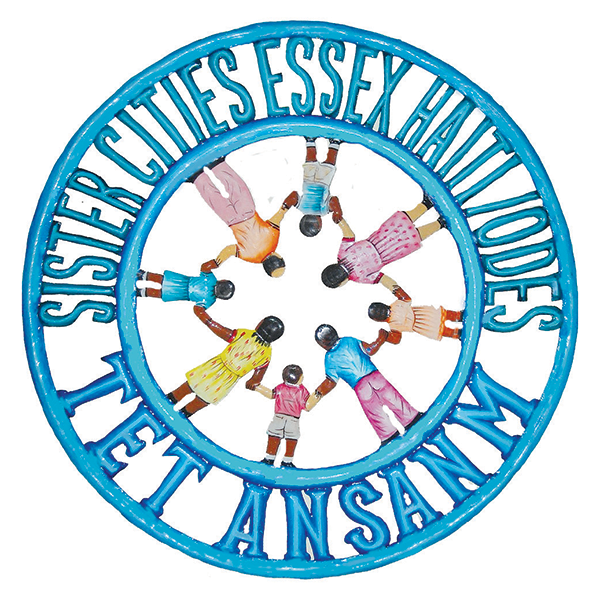Teacher Training Update: March 2014
Using newly donated books and a manipulatives workshop was held in March 2014 with 22 children and more than 30 pre-school teachers who had attended the second workshop in August 2013. Because some of the pre-school teachers did not seem as comfortable using the manipulatives and reading to children in the classroom as others, the […]
Teacher Training Update: August 2013
SCEH EETT workshop August 2013. Vera Dowell, Diane Huot, and Bob Lamothe joined Jenifer Grant for the second phase of the EETT project. Six of the original students from the April 2012 workshop were comfortable enough with their knowledge and familiarity of what we had presented and what they had integrated into their schools to […]
Teacher Training Update: March 2013
Sister Cities Essex Haiti was delighted to be able to welcome Kettelie Petit-Loute to Essex March 4-5, 2013. Kettelie is the Director of Ecole Flamboyant, a school in Deschapelles, Haiti, and is also a pre-school teacher. She participated in the SCEH Early Education Teacher Training project in March of 2012, and made her school available for the week long […]
Teacher Training Update: January 2013
The teachers continue to use the manipulative materials we had brought down with varying degrees of commitment in the four schools. We were able to send three teachers from three schools to a more in-depth educational conference in Port au Prince and Raphaella Baker, a Haitian woman who has a wonderful learn-to-read program with songs […]
Teacher Training Update: June 2012
Jenifer Grant, Diane Huot, a first grade teacher in New Haven who has joined our EETT efforts, and Anny Frederique met with the EETT teachers on Sunday evening to discuss Diane’s and Anny’s visits upcoming visits to the schools. The schools are slowly integrating the manipulatives as well as story time in their curriculum. They […]
